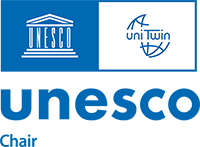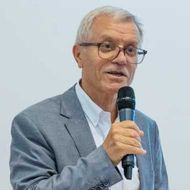- A
- A
- A
- ABC
- ABC
- ABC
- А
- А
- А
- А
- А
- HSE University
- UNESCO Chair on Future Studies
- News
- Professor Alexander Sokolov presented UNESCO Chair on Future Studies activities at the 5th Russian Congress of UNESCO Chairs
-
-
Education
-
Science
11 Myasnitskaya St., Moscow
+7 (495) 621-28-73
issek@hse.ru
Meissner D., Zhou Y., Fischer B. et al.
Technological Forecasting and Social Change. 2022. Vol. 178.
Abdrakhmanova G., Vasilkovsky S., Vishnevskiy K. et al.
M.: National Research University Higher School of Economics, 2022.
Saritas O., Burmaoglu S., Ozdemir D.
Futures. 2022. Vol. 137.
Sokolov A., Shashnov S. A., Kotsemir M. N.
In bk.: BRICS Comprehensive Innovation Competitiveness Report 2020. Scientific and technical documentation press, 2021. P. 36-98.

Professor Alexander Sokolov presented UNESCO Chair on Future Studies activities at the 5th Russian Congress of UNESCO Chairs

Minister of Foreign Affairs of the Russian Federation, Chairman of the Commission of the Russian Federation for UNESCO Sergey Lavrov and Deputy Minister of Science and Higher Education of the Russian Federation Konstantin Mogilevsky sent welcome messages addressed to the Congress participants.
Sergey Lavrov highly appreciated "the activities aimed at developing the UNITWIN program, expanding the network of "University Twinnings" in Russia", highlighted the significant contribution of UNESCO Chairs “to the Russian Federation foreign policy implementation aimed at strengthening the role of our country in the global humanitarian space and shaping of its positive image abroad.”
Alexander Alimov, Secretary General of the Commission of the Russian Federation for UNESCO, Director of Department for Multilateral Humanitarian Cooperation and Cultural Relations, Ministry of Foreign Affairs of the Russian Federation emphasized the special importance of UNESCO Chairs in connection with political situation, which dictates the need to promote Russian interests on all international platforms, defend enduring moral values, and contribute to increasing the prestige of domestic education, science, and culture.
Representatives of Russian UNESCO Chairs shared information about completed projects and further plans aimed at solving global problems and implementing the UN Sustainable Development Goals (SDGs) with a particular focus on UNESCO coordinated SDG4 "Ensure inclusive and equitable quality education and promote lifelong learning opportunities for all."
The UNESCO Chair on Future Studies was established in 2021 on the basis of the International Research and Educational Foresight Center of the HSE Institute for Statistical Research and Economics of Knowledge under support of the Human Capital Multidisciplinary Research Center and Strategic Project 'National Centre of Science, Technology and Socio-Economic Foresight' (within the framework of the Priority 2030 programme).
The Chair’s activities cover interrelated areas of education, research, knowledge transfer and international partnership in futures studies to develop anticipatory systems and processes using big data mining system iFORA, aiming at improving strategic decision-making to address socio-economic challenges both at national and global levels.
Prof. Alexander Sokolov shared with the audience the Chair’s outcomes over the four-year period of its existence.
The Chair’s research focuses on the development of foresight methodology, anticipatory systems and processes, identification of major emerging and evolving trends in science, technology and innovation (STI), economy and society both at national and global levels, using big data mining system iFORA, comprising 850+ million documents and expert sessions with participation of a wide range of leading Russian and international specialists.
The Chair has designed a unique Internet accessible database on Global Trends in the areas of Health, Education and Labour, Economy, Ecology and Environment, Politics and Regulation, Society and Values.
The research findings integrated into professional training programmes and disciplines studying the foresight methodology and its application in public administration and business of the HSE English-language Master's Programme "Science, Technology and Innovation Management and Policy", which was graduated by over 240 alumni from 30+ countries across the world in 2021-2024.
Alongside master classes, vocational training “Digitalization of HR and Marketing” and elective course “Foresight: methods, organization, best practices” accessible for participants of any country, organization, profession and level of education have been held thus promoted lifelong learning for young people and adults.
The Chair promoted knowledge transfer and international cooperation strengthening in the field of futures studies through annual academic events, regular publications and posting information on the Chair’s web-site and in Telegram channel iFORA_knows_how.
The Chair organized conferences, workshops and expert discussions on hot topics of futures studies engaging 1,500+ representatives of academic, educational and business sectors from 20+ countries worldwide. The Chair experts together with UNESCO Chairs from Canada and South Africa organised Parallel Session ‘Science, Technology and Innovation Foresight for Countries in Africa’ within the UNESCO Chairs and Partners Forum ‘Transforming Knowledge for Africa’s Future’ took place in Addis Ababa, in 2024. The Chair’s staff delivered presentations at international venues abroad in Brazil, Morocco, Saudi Arabia, Switzerland, South Africa.
New cooperation agreements have been concluded with partner institutions from South Africa, Malaysia, Morocco and Brazil.
The Chair scholars contributed to a number of papers in top journals including Technological Forecasting and Social Change, Foresight, Futures, European Journal of Futures Research, Marine Policy, Renewable Energy, etc. In 2024, they edited and authored chapters to a Springer Nature book presenting findings of a STI foresight study for South Africa, which provides policy recommendations for STI, societal development and achieving SDGs.
The Chair will further perform advanced foresight-studies using innovative science and technology achievements, including artificial intelligence based technologies, evolve skills and competences to study future trends in STI, economy and society, as well as strength international partnerships to response socio-economic challenges both at national and global levels, Alexander Sokolov emphasized in conclusion.
Tawil Sobhi, Director of UNESCO Division Future of Learning and Innovation described UNESCO Chairs as a global community that embodies the principles of intellectual solidarity and international academic cooperation focused on UNESCO priorities, interdisciplinary approach, strategic vision, North-South, South-South partnerships, publication openness, strengthening horizontal links and expanding communication worldwide.
- About
- About
- Key Figures & Facts
- Sustainability at HSE University
- Faculties & Departments
- International Partnerships
- Faculty & Staff
- HSE Buildings
- HSE University for Persons with Disabilities
- Public Enquiries
- Studies
- Admissions
- Programme Catalogue
- Undergraduate
- Graduate
- Exchange Programmes
- Summer Schools
- Semester in Moscow
- Business Internship
- © HSE University 1993–2025 Contacts Copyright Privacy Policy Site Map
- Edit

